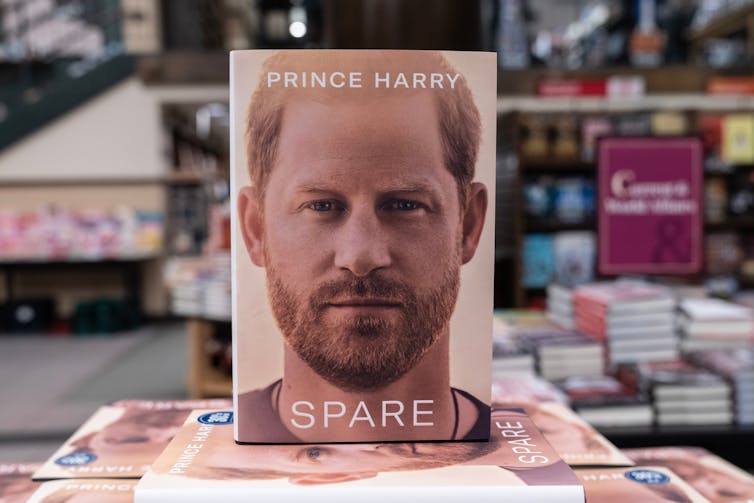Eight days before Prince Harry’s memoir Spare hit shelves elsewhere, copies went on sale prematurely in Spain.
Over the next few days the UK media, scrambled to acquire Spanish copies of the book, having been unable to get English versions for themselves. Their reporting on the story was initially based on these Spanish versions.
The fact that many of the quotes had been translated from English to Spanish and then back into English was barely acknowledged. Sometimes, this results in change, or different versions, as we see below. The book’s tagline is “His Words. His Story.” and part of the coverage centred around why it was important that these were Prince Harry’s own words. Yet what those words actually were, depended on where you read them.
His words?
One much quoted extract from Spare is Prince Harry’s account of how many members of the Taliban he had killed. He writes:
So, my number: twenty-five. It wasn’t a number that gave me any satisfaction. But neither was it a number that made me feel ashamed.
This was a focal point for early spoilers on the book and was quoted differently in different publications.
On Sky: “So my number: twenty-five. It was not something that filled me with satisfaction, but I was not ashamed either.”
In The Times: “So my number is 25. It’s not a number that fills me with satisfaction, but nor does it embarrass me.”
Neither of these translations is wrong. They show different ways of rendering the same idea – but the cumulative effect is important.
It was unclear whether early criticisms were responding to the published version or alternative translations. Those attacking the author for his stance may not in fact have been responding to “his words” at all.
A more detailed example comes in Prince Harry’s account – here taken from the book in English – of losing his virginity:
Inglorious episode, with an older woman. She liked horses, quite a lot, and treated me not unlike a young stallion. Quick ride, after which she’d smacked my rump and sent me off to graze. Among the many things about it that were wrong: It happened in a grassy field behind a busy pub.
Unsurprisingly, this was another of the most frequently quoted leaks. But again, the wording is not consistent. The Daily Mail quoted:
“… a humiliating episode with an older woman who liked macho horses and who treated me like a young stallion. I mounted her quickly, after which she spanked my ass and sent me away. One of my many mistakes was letting it happen in a field, just behind a very busy pub.”
There are some significant differences. Firstly, a shift in agency and responsibility: a “quick ride” is recast to position Harry as dominant (“I mounted her”), while “things that were wrong” become “my many mistakes”, suggesting self-accusation.
There is also awkwardness, in the term “macho horse” and in the reference to ass spanking: would the author who talks elsewhere about his “todger” also say “ass”?
The different word choices may be partly about different translators working on the text that appeared in different places. A translator collaborates in rewriting the author’s text, brings out its interest and value, reads carefully for hidden layers of meaning and confronts difficulties and inconsistencies.
Languages don’t map directly onto one another and there is often more than one way to translate a given word or phrase. What’s notable here is that the invisibility of the English to Spanish to English translation process leaves readers not understanding why there are different versions.
His story?
Translation theorists have talked about translation as a kind of “rewriting”. Recognising the translator as an active writing agent is key to exploring the ethical question of whose voice is heard in translated texts.
However, the participation of others in the telling doesn’t necessarily mean Spare is no longer Prince Harry’s story.

Storytelling is central to how we establish our identity, and it is social. We rely on communities to retell our stories and so, as the philosopher Alasdair MacIntyre explains: “We are never more (and sometimes less) than co-authors of our own narrative.”
But how far can the ownership of Prince Harry’s narrative stretch when the words are no longer “his”? As we have seen, when fragments and differently translated snippets are all presented as “the text”, the resulting inconsistency undermines the authenticity of the story, and with it the agenda of the book.
The marketing for Spare and media appearances surrounding its publication have leaned heavily on a bid to “tell my own story” and resist “words being taken out of context”. The realities of translation show how difficult this is.
Caroline Summers does not work for, consult, own shares in or receive funding from any company or organisation that would benefit from this article, and has disclosed no relevant affiliations beyond their academic appointment.
This article was originally published on The Conversation. Read the original article.







